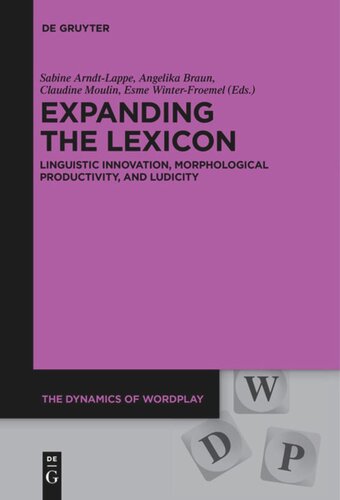

Most ebook files are in PDF format, so you can easily read them using various software such as Foxit Reader or directly on the Google Chrome browser.
Some ebook files are released by publishers in other formats such as .awz, .mobi, .epub, .fb2, etc. You may need to install specific software to read these formats on mobile/PC, such as Calibre.
Please read the tutorial at this link: https://ebookbell.com/faq
We offer FREE conversion to the popular formats you request; however, this may take some time. Therefore, right after payment, please email us, and we will try to provide the service as quickly as possible.
For some exceptional file formats or broken links (if any), please refrain from opening any disputes. Instead, email us first, and we will try to assist within a maximum of 6 hours.
EbookBell Team

4.4
92 reviewsThe creation of new lexical units and patterns has been studied in different research frameworks, focusing on either system-internal or system-external aspects, from which no comprehensive view has emerged. The volume aims to fill this gap by studying dynamic processes in the lexicon – understood in a wide sense as not being necessarily limited to the word level – by bringing together approaches directed to morphological productivity as well as approaches analyzing general types of lexical innovation and the role of discourse-related factors. The papers deal with ongoing changes as well as with historical processes of change in different languages and reflect on patterns and specific subtypes of lexical innovation as well as on their external conditions and the speakers’ motivations for innovating. Moreover, the diffusion and conventionalization of innovations will be addressed. In this way, the volume contributes to understanding the complex interplay of structural, cognitive and functional factors in the lexicon as a highly dynamic domain.